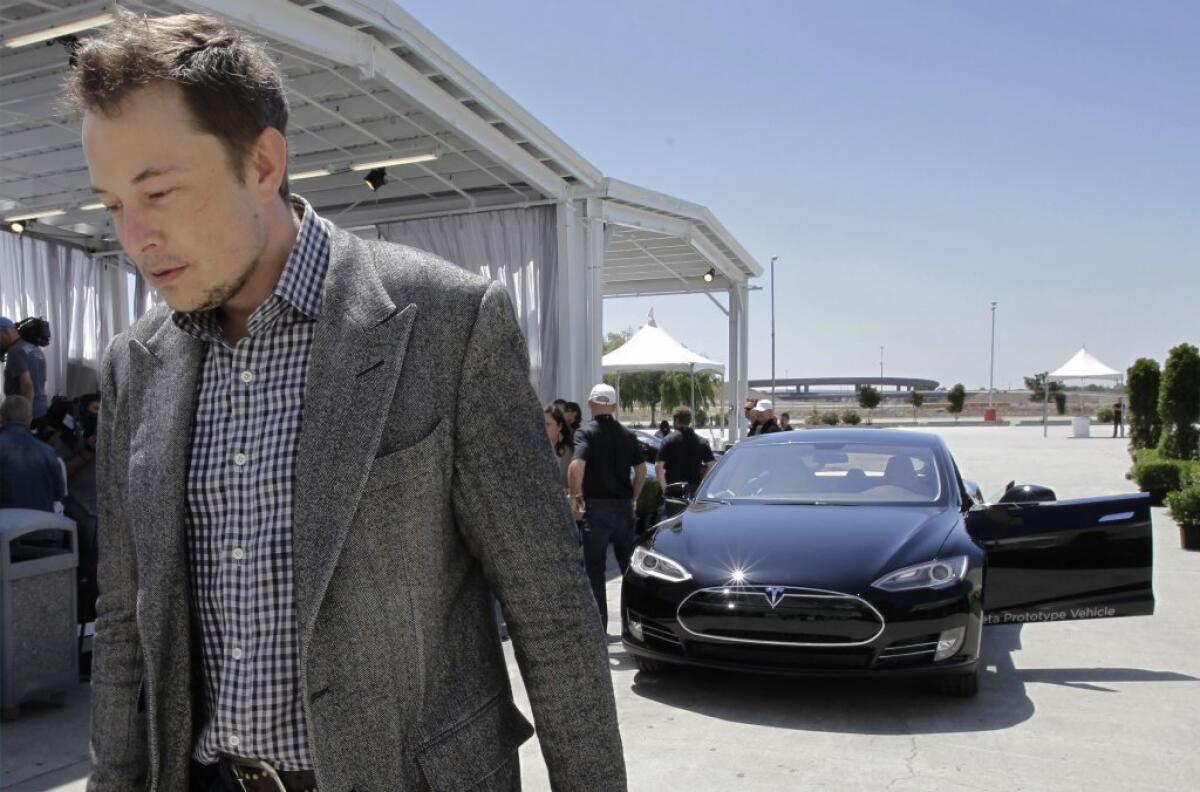The air starts leaking out of Tesla’s tires

No one can deny that Elon Musk of Tesla Motors is a great promoter, and possibly a great motivator of engineering manpower. As a seller of electric cars at a profit ... well, let’s just say the jury is still out. But it can’t be good for Musk or his company that investors are beginning to wonder about that last question.
The evidence for this is the stock market’s reaction to Tesla’s latest quarterly earnings report, issued earlier this month.
Like previous quarterly statements, the third quarter report was shot through with fancy accounting gimmicks, including the booking of 100% of lease income as revenue up-front. That’s not permitted under generally accepted accounting principles, or GAAP, which sets the standard for public corporate accounting in the real world. (One reason is that some lease revenue is conditional, since it must be returned when the car is returned.)
On a non-GAAP basis, Tesla showed a $16-million profit in the third quarter; according to GAAP, it lost $38.5 million. Big difference.
In earlier quarters, investors didn’t seem to mind the discrepancy between Tesla’s GAAP and non-GAAP results, which also featured sizable gains from selling not cars, but zero-emission tax credits to other companies. Tesla stock soared after the first- and second-quarter reports this year -- by early August, when the second quarter results were announced, Tesla shares had gained nearly 300% for the year. In May, on the strength of its sharp run-up in price, Tesla sold $1 billion in stock and debt, allowing it to pay off its federal loan nine years early.
This time around investors aren’t biting. Since May 5, when the third-quarter results came out, Tesla’s down more than 31% to $121.58 -- falling more than 10% on Monday alone. The market may have seen this coming, as the shares peaked at the end of September at $193.37.
Perhaps more ominously, the financial press is becoming less tolerant of Musk’s notion of “profit” and “loss.” Bloomberg has questioned whether Tesla’s reporting of GAAP and non-GAAP results violates the reporting standards for both. (The rules say that if you’re using both measures, you’re supposed to give more prominence to the GAAP figures in your investor communications.) The company says it’s playing by the rules.
Many of Musk’s defenders are willing to give him a pass on the financial maneuvering -- after all, it’s said, Tesla’s a young company, so why should it be held to the reporting standards of its elderly competitors, like GM and Ford?
But there is a reason, and Tesla’s recent stock activity shows why: When investors are steered toward non-standard financial metrics, a company’s real weaknesses can be obscured. Sooner or later someone wakes up -- and the harvest for investors can be pretty ugly. What is Tesla really worth as a car manufacturer? The people who thought in May that the sky’s the limit may be thinking twice today.




